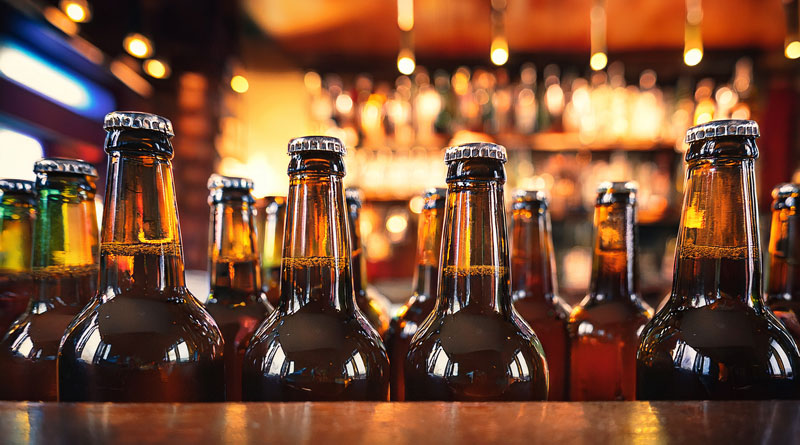Welsh Government Announces Consultation On Its Proposals For A New Deposit Return Scheme

The Wine and Spirit Trade Association (WSTA) today expressed concerns regarding the Welsh Government’s confusing proposal to create a unique Deposit Return Scheme (DRS) which will include glass beverage containers. The WSTA has long warned a separate scheme to the rest of the UK risks creating significant market distortions, adding unnecessary costs for consumers, as well as both undermining Wales’s existing, highly effective kerbside recycling system and failing to explain how this proposal fits with the recently launched, UK-wide Extended Producer Responsibility (EPR) scheme.
The Welsh Government plan to incorporate glass into an isolated, Wales-only DRS, which risks contradicting assurances around interoperability with other UK schemes that Deputy First Minister, Huw Irranca Davies, gave to the WSTA board at its July board meeting, held at Penderyn distillery in Swansea. T
he WSTA has questioned the rationale for this decision, given Wales already boasts an efficient glass collection system, exceeding 90%, without the consequences of a DRS. Glass drinks containers are currently collected alongside jars and other glass bottles in a kerbside system, but under these plans this efficiency will be lost.
Without a deposit from day one, consumers will have little incentive to transport glass bottles to retailers. This muddled policy proposal is likely to reduce collection rates, raise emissions and increase costs for already-stretched hospitality businesses, retailers and ultimately Welsh consumers.
A significant concern is the potential for market disruption across the UK. Consumers enjoy a continued free flow of goods and services across the England and Wales border, however these plans undermine this basic principle. For example, products destined for Wales are likely to require unique labelling, tracking and separation, leading to higher costs or less choice for Welsh customers.
By deviating from a single UK scheme, the Welsh Government risks further delay and would create a convoluted and expensive regulatory environment.
The WSTA said it will be using the consultation period to urge the Welsh Government to reconsider its plans and rejoin the UK scheme, set to be introduced in October 2027. WSTA will continue to encourage Defra and Welsh government to discuss the benefit of a single scheme for the UK market.
These proposals introduce added complications and expenses across the supply chain. Reverse vending machines, used to collected empty bottles, usually break glass, diminishing its quality and making it less suitable for remelting into new bottles and jars. Hospitality business will need to store glass on their premises, talking up valued storage space or leading to substitution away from glass altogether.
Retailers are left in limbo without necessary detail to allow long-term infrastructure investment or explain how the scheme is funded. Including glass in a unique Welsh scheme undermines the Wales’s interaction with the existing UK-wide Extended Producer Responsibility (EPR) scheme, which funds kerbside household collections and public bins. The Welsh Government must explain exactly how these proposals are funded and the interaction with EPR.
While reuse can work for some FMCG products, for example those using standardised bottles, with short distances to cleaning and refill facilities, there would be significant barriers to overcome, and specific conditions required to consider a reuse scheme for wines and spirits.
For example, there are more than 500,000 wine and spirit SKUs available to the UK market, and the variety of bottle means impractical inefficiencies. Furthermore these bottles would need to be returned to the nation where they are filled, creating unnecessary emissions. Wales should not pursue glass reuse, instead taking an evidence-based approach and backing the glass industry as it targets net zero glass by 2030.
The WSTA is calling on the Welsh Government to:
- Align DRS proposals with the rest of the UK, avoiding further delay and penalising Welsh businesses and consumers.
- Pursue an evidence-based approach and work with the wine and spirit trade to explore reuse and develop realistic timeframes.
- Back glass recycling and manufacturing, and prevent unnecessary substitution to other materials.
The WSTA supports a collaborative and consistent approach across the UK, to establish an evidence-based, sustainable, and economically sound circular economy.
Miles Beale, Chief Executive of the Wine and Spirit Trade Association, said:
“The Welsh Government’s proposal for a separate and different Deposit Return Scheme in Wales, one that includes glass, is concerning. It risks undermining an existing recycling system that is ‘best in class’ and creating new and significant market distortions. We believe this new approach, which lacks clarity as to how it is funded, would not only fail to improve on current high collection rates, but will also add unnecessary costs for Welsh businesses and consumers.
By deviating from the rest of the UK, the Welsh Government risks introducing regulatory chaos and greater costs for Welsh consumers. These plans will create complexities for supply chains, potentially leading to increased costs and reduced consumer choice as producers and the supply chain are forced to navigate a unique system in one part of the UK. We strongly urge the Welsh Government to align its plans with the rest of the UK, to ensure a single, less costly, more efficient and environmentally effective scheme.”
Nick Kirk, Director at British Glass, said:
“Wales already has one of the best kerbside glass collection systems in the world – so why disrupt it with an expensive and unnecessary DRS that will deliver little extra benefit? With zero deposit on glass, the public will stick to the convenience of kerbside collections, while producers face high fees and added complexity.”
